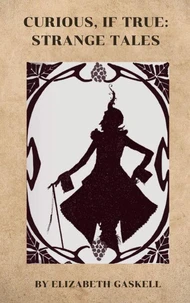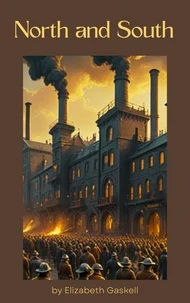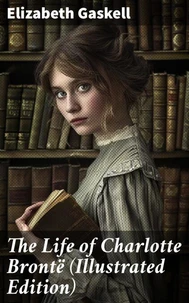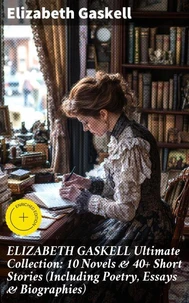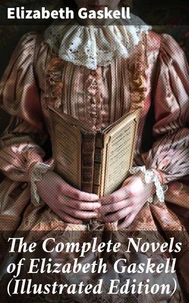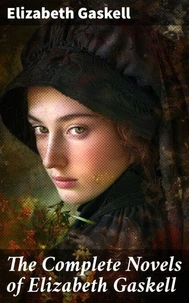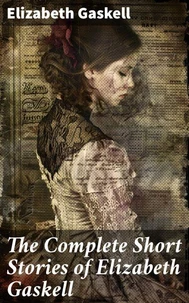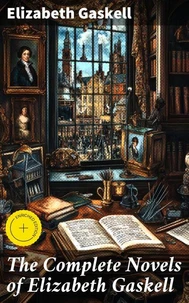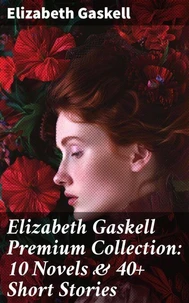The Old Nurse's Story
Par :Formats :
Disponible dans votre compte client Decitre ou Furet du Nord dès validation de votre commande. Le format ePub est :
- Compatible avec une lecture sur My Vivlio (smartphone, tablette, ordinateur)
- Compatible avec une lecture sur liseuses Vivlio
- Pour les liseuses autres que Vivlio, vous devez utiliser le logiciel Adobe Digital Edition. Non compatible avec la lecture sur les liseuses Kindle, Remarkable et Sony
 , qui est-ce ?
, qui est-ce ?Notre partenaire de plateforme de lecture numérique où vous retrouverez l'ensemble de vos ebooks gratuitement
Pour en savoir plus sur nos ebooks, consultez notre aide en ligne ici
- Nombre de pages22
- FormatePub
- ISBN859-65--4702340-1
- EAN8596547023401
- Date de parution29/05/2022
- Protection num.Digital Watermarking
- Taille282 Ko
- Infos supplémentairesepub
- ÉditeurDIGICAT
Résumé
In Elizabeth Gaskell's haunting novella, "The Old Nurse's Story, " we are drawn into the chilling world of gothic literature, where the boundaries of memory, family, and the supernatural intertwine. Through the voice of a nurse recounting a tale of her charge's eerie experiences in a decaying manor, Gaskell masterfully employs rich, descriptive language and a suspenseful narrative style, which immerses the reader in a foreboding atmosphere.
Drawing on elements of traditional ghost stories, the novella challenges Victorian sensibilities, particularly regarding class and gender, while exploring themes of loyalty and loss, making it a notable work within the broader context of 19th-century gothic fiction. Elizabeth Gaskell, a key figure in Victorian literature, was known for her exploration of social issues and the complexities of human relationships.
Her own experiences as a wife to a Unitarian minister and her keen observations of working-class struggles in industrial England deeply influenced her writing. "The Old Nurse's Story" reflects her interest in the intersections of personal and societal narratives, as well as her fascination with the uncanny and the moral implications tied to the past. Gaskell's novella is highly recommended for readers who appreciate gothic tales steeped in emotional depth and psychological nuance.
It invites contemplation of the past's spectral presence in our present lives, while also offering an engaging glimpse into the intricacies of human experience, marking it as an essential reading for enthusiasts of Victorian literature and ghostly storytelling.
Drawing on elements of traditional ghost stories, the novella challenges Victorian sensibilities, particularly regarding class and gender, while exploring themes of loyalty and loss, making it a notable work within the broader context of 19th-century gothic fiction. Elizabeth Gaskell, a key figure in Victorian literature, was known for her exploration of social issues and the complexities of human relationships.
Her own experiences as a wife to a Unitarian minister and her keen observations of working-class struggles in industrial England deeply influenced her writing. "The Old Nurse's Story" reflects her interest in the intersections of personal and societal narratives, as well as her fascination with the uncanny and the moral implications tied to the past. Gaskell's novella is highly recommended for readers who appreciate gothic tales steeped in emotional depth and psychological nuance.
It invites contemplation of the past's spectral presence in our present lives, while also offering an engaging glimpse into the intricacies of human experience, marking it as an essential reading for enthusiasts of Victorian literature and ghostly storytelling.
In Elizabeth Gaskell's haunting novella, "The Old Nurse's Story, " we are drawn into the chilling world of gothic literature, where the boundaries of memory, family, and the supernatural intertwine. Through the voice of a nurse recounting a tale of her charge's eerie experiences in a decaying manor, Gaskell masterfully employs rich, descriptive language and a suspenseful narrative style, which immerses the reader in a foreboding atmosphere.
Drawing on elements of traditional ghost stories, the novella challenges Victorian sensibilities, particularly regarding class and gender, while exploring themes of loyalty and loss, making it a notable work within the broader context of 19th-century gothic fiction. Elizabeth Gaskell, a key figure in Victorian literature, was known for her exploration of social issues and the complexities of human relationships.
Her own experiences as a wife to a Unitarian minister and her keen observations of working-class struggles in industrial England deeply influenced her writing. "The Old Nurse's Story" reflects her interest in the intersections of personal and societal narratives, as well as her fascination with the uncanny and the moral implications tied to the past. Gaskell's novella is highly recommended for readers who appreciate gothic tales steeped in emotional depth and psychological nuance.
It invites contemplation of the past's spectral presence in our present lives, while also offering an engaging glimpse into the intricacies of human experience, marking it as an essential reading for enthusiasts of Victorian literature and ghostly storytelling.
Drawing on elements of traditional ghost stories, the novella challenges Victorian sensibilities, particularly regarding class and gender, while exploring themes of loyalty and loss, making it a notable work within the broader context of 19th-century gothic fiction. Elizabeth Gaskell, a key figure in Victorian literature, was known for her exploration of social issues and the complexities of human relationships.
Her own experiences as a wife to a Unitarian minister and her keen observations of working-class struggles in industrial England deeply influenced her writing. "The Old Nurse's Story" reflects her interest in the intersections of personal and societal narratives, as well as her fascination with the uncanny and the moral implications tied to the past. Gaskell's novella is highly recommended for readers who appreciate gothic tales steeped in emotional depth and psychological nuance.
It invites contemplation of the past's spectral presence in our present lives, while also offering an engaging glimpse into the intricacies of human experience, marking it as an essential reading for enthusiasts of Victorian literature and ghostly storytelling.


